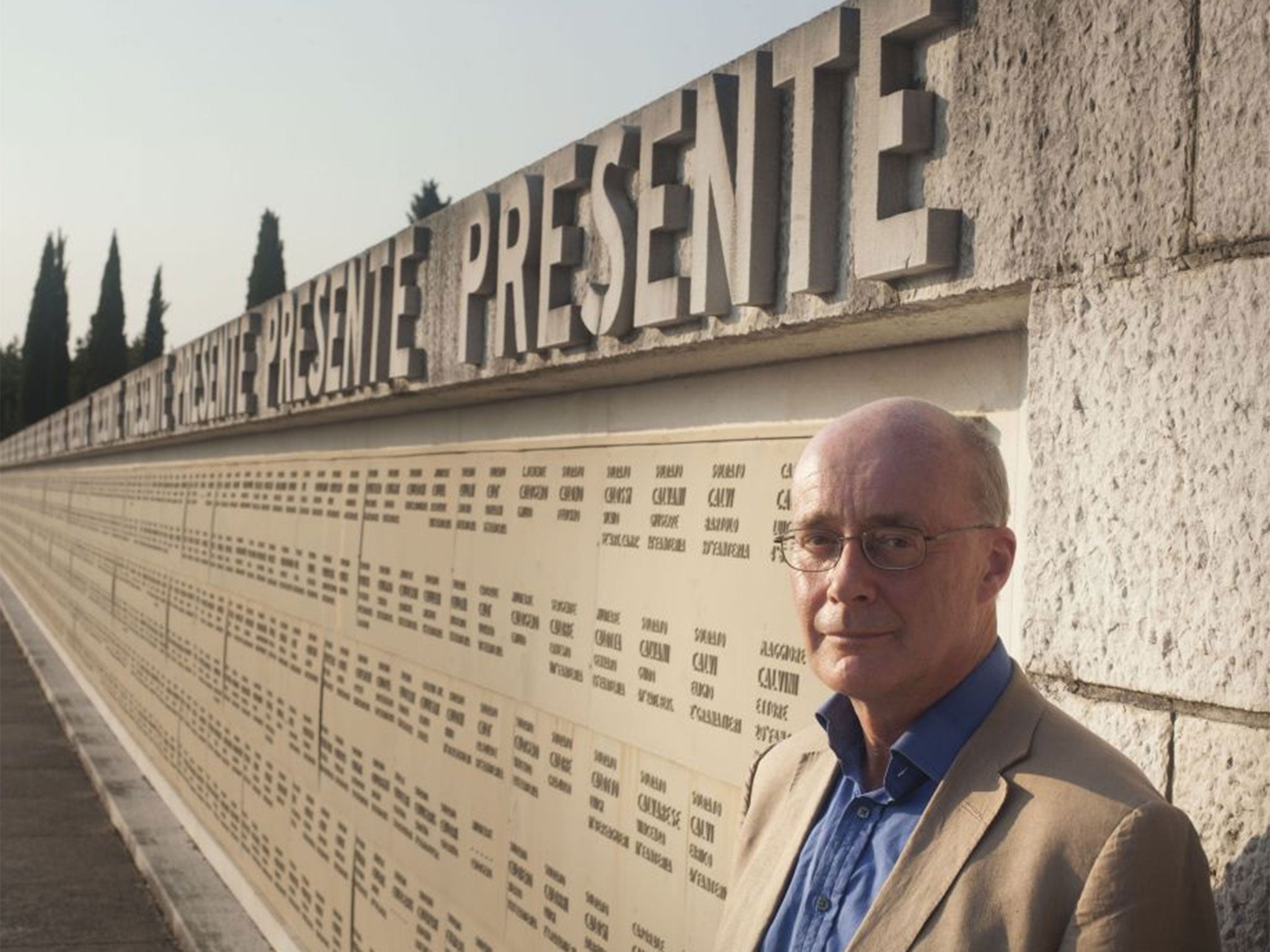The Long Shadow, TV review: Mussolini was a British spy? They don’t tell you that at school
David Reynolds visits Redipuglia‚ Italy’s First World War memorial

The joy of learning about history is that everything connects. When you’re a kid, you gain a base understanding of the world. Who’s the prime minister, who we’re at war with this time, what the capital of Switzerland is (that one still gets me), that kind of thing.
Then, at school, if my experience was anything to go by, you learn about the Nazis, then you learn about the causes of the Second World War, then you learn about the home front, then you learn a bit more about the Nazis. Seriously, ask me about Nazis.
But then you learn about the world and start to piece together the whys and wherefores of global history and watch your median pub quiz score slowly improve.
And then you watch Alan Bennett and realise that Rudge’s line in The History Boys (or possibly Arnold Toynbee or Henry Ford’s) – “It’s just one fucking thing after another” – is probably the most important point of all. It all connects.
BBC2’s three-part documentary series The Long Shadow, presented by Professor David Reynolds, chair of the history faculty at Cambridge, does a good job of drawing the connecting lines of 20th-century global politics (the one thing after anothers) from the First World War onwards. In this, the second part, Reynolds extrapolated from the end of the Great War and looked at how three ideologies would “convulse the world” for most of the 20th century. Namely, the liberal democracy of Woodrow Wilson, the communist autocracy of Lenin, and Mussolini’s militarist authoritarianism.
This being a historical documentary, it began – as they all do – with the presenter talking to camera as bassy drums hinted at the power of the information to come. We’d encounter “democracy hitting Europe hitting a big bang” and ideologies that “would inspire demagogues across the continent”.
Sensibly, Reynolds chose not to focus too much on Mussolini, Stalin, Hitler and chums. (Though I did learn that during the First World War, Il Duce had been in the pay of UK intelligence, a fact omitted from my history textbooks.) Instead, the backbone of this hour was the role of two British prime ministers not always regarded in the pantheon of 20th-century Parliamentarians, Ramsay MacDonald and Stanley Baldwin.
MacDonald, the man who rode post-war suffrage into Downing Street and caused George V to privately sigh, “I wonder what grandmama would have made of a Labour government?” and Baldwin, who helped him rule in the National Government of the 1930s, are painted here as the two centrists who helped keep Britain stable while the rest of Europe convulsed. As Italy and Germany militarised, the UK government was building suburbs. They had the Weimar Republic. We got Wimpey Homes.
Maybe that’s as good a case for grand coalitions as you’ll ever get. But, as Reynolds pointed out, as Britain’s South-eastern “heartland” boomed after 1933, the rest of Britain took the ritual economic kicking it’s since become accustomed to. Albeit a kicking that fuelled the power of the Labour movement and the birth of the welfare state.

Watch Apple TV+ free for 7 days
New subscribers only. £8.99/mo. after free trial. Plan auto-renews until cancelled

Watch Apple TV+ free for 7 days
New subscribers only. £8.99/mo. after free trial. Plan auto-renews until cancelled
What was perhaps most interesting (well, terrifying) here was when Reynolds zoomed to the present day and the similarities between the Arab Spring and the ocean of uncertainty that filled Europe after the First World War. There, it was filled by fascism, communism and the trudge to another global conflict.
There are obvious parallels with the state of the Middle East in 2014 as nation states struggle to contain the rise of toxic ideologies. Everything connects. And we might be due for a peaceful decade in, ooh, about the 2090s.
Subscribe to Independent Premium to bookmark this article
Want to bookmark your favourite articles and stories to read or reference later? Start your Independent Premium subscription today.

Join our commenting forum
Join thought-provoking conversations, follow other Independent readers and see their replies